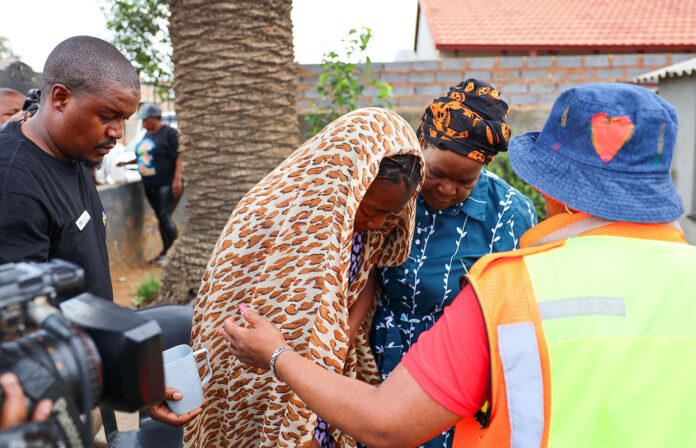The poisoning of food sold at spaza shops appears to be a deliberate effort to discredit the informal tuck shops with the idea that they will get shut down by the government in response.
Infectious disease specialist from the University of Free State (UFS), Dr Cloete van Vuuren, made the shocking disclosure following the death of yet another child in Soweto this week.
Five-year-old Siyabonga Mnisi died after allegedly consuming snacks from a foreign-owned spaza shop in Diepkloof, Soweto. Siyabonga was set to graduate from Grade R on Friday.
On Friday, as little Siyabonga’s family came to grips with the little boy’s passing, Van Vuuren told Sunday World that blaming foreigners for the ongoing crisis, and the government’s call for registration of spaza shops within 21 days will not solve the problem.
He said the fact that some of these children experience symptoms quickly after consuming the spaza shop food and die within hours, “it is very unlikely that this is accidental”.
Van Vuuren said he is basing his argument on the fact that children are poisoned simultaneously over a wide area in the country and the children are exposed to high doses of organophosphate.
More than 20 children have died and at least 890 incidents linked to food-borne illnesses have been reported since September. Last month, six children died in Naledi, Soweto, from allegedly eating snacks bought from a spaza shop.
The government has revealed that the children were killed by a highly hazardous chemical used as a pesticide known as Terbufos, which is an organophosphate chemical that is registered for agricultural use but is not allowed to be sold for general household use.
“What seems to be happening here is food that is contaminated with poison, with an organophosphate. Contamination is accidental if it happens in small amounts, and you would have a case here and there.
“In this instance, we have a huge number of children simultaneously being poisoned in certain places over a wide area and they are exposed to very high doses of organophosphate,” said Van Vuuren.
“Spaza shop owners won’t poison their customers. The concern here is that there are outside forces involved. People argue that most spaza shop owners are foreigners and people do not want foreigners to trade. They poison their stock, children get poisoned and their shops close. That might be an underlying explanation,” said Van Vuuren.
“It is unlikely that the doses that the children are exposed to, and the number of deaths is purely accidental. This is not a medical food-borne outbreak. Somebody is deliberating contaminating food that is sold at spaza shops to discredit spaza shops to get them to close. Police need to investigate this,” said Van Vuuren.
He said calling what is happening a food-borne illness is a misnomer. “This food does not have any virus, bacteria or infection. The children are dying of insecticide poisoning in very high doses. Some deliberate forces are at play here. Somebody is deliberately poisoning the supply of food in spaza shops,” said Van Vuuren.
Prof Richard Meissner, a politics and local government expert from the University of South Africa, said the government is struggling to find the source of the “poison” killing the children.
“To determine the origin of the poison is difficult. This is what is hamstringing them… It is a poison used in the agricultural sector, and this means somewhere out there in the rural areas someone is getting his or her hands on this poison and selling it on the black market and that black market is hidden,” said Meissner.
“What intrigues me about these food-borne deaths among children is that about six months ago we didn’t hear at all about this. Suddenly in the past two months, we hear about it every week. Something happened in the past two months that created this problem. Why so sudden? Why is there a spread of deaths?”




Hi,
It’s good and we’ll that the government want the tuckshops to be registered and the inspection of the stock being sold by these spaza shops. But why the investigation is not taken back from the source, that is where the spaza shops buy their stock. Check these wholesales stock condition and if need be investigate the suppliers of the wholesales as well.